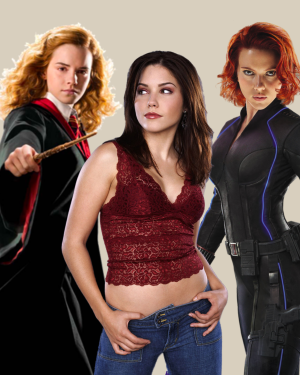The Vilification of Sharpay Evans
November 17, 2022
In the “High School Musical” franchise, Sharpay Evans was repeatedly tormented by Troy and Gabriella, yet she was stereotyped as a “mean girl” due to her hyper femininity and passionate personality. After analyzing the interactions between these characters, it is apparent that Sharpay is the victim.
Sharpay and her brother, Ryan, have acted in 17 school musicals, and their dedication to musical theater is well known among the students at East High. When Gabriella and Troy notice the spring musicals audition sign up sheet, they make fun of the play and Sharpay’s eagerness to sign up. However, they both reluctantly decide to audition even though they are both busy with other extracurricular activities, and they have no prior experience in acting, singing or dancing. They arrive late and unprepared for the audition, whereas, Sharpay and Ryan’s perform a clearly rehearsed number. Troy and Gabriella are cast as the lead roles, but they express that they feel embarrassed about this. Rather than letting Ryan and Sharpay take the roles that they are ashamed of, the two use their participation in the play to take a stand against the social structure of their school. Sharpay is justified to feel anger towards two ungrateful people who took the role that she was more qualified for. Not only did they infiltrate the hobby Sharpay is dedicated to, but they also diminished it into a strange social movement. Her passion was ripped away from her, and she was socially ostracized for the way she reacted to this.
Even though Gabriella is fully aware that Sharpay does not like her, Gabriella decides to get a summer job at the country club that Sharpay and Ryan’s family owns. This country club is a safe space where Sharpay is not tormentented for being herself. Every year, Sharpay displays her talents at the summer talent show, and Troy agrees to perform a duet with her. Kelsey writes an upbeat jazzy duet for them, and their compatible voices create an absolutely phenomenal performance. But at the talent show, Gabriella performs a slower rendition of the same song with Troy and the other workers, and they exclude Sharpay from this. Sharpay obviously feels betrayed that Gabriella took her son and the man she has a crush on, and everyone collectively makes fun of her reaction.
“High School Musical 3” is when Sharpay is treated the absolute worst. Since she was a child, she has been diligently working to attend Julliard after graduation. This year, Sharpay and Troy are the lead roles, and a Julliard recruiter is attending the opening night to analyze her performance. Instead of following through on his commitments, Troy decides that visiting Gabriella is more important, so the inexperienced understudy fills in for Troy. The understudy makes a mockery of the play and publicly humiliates Sharpay which ruins her chances of attending this prestigious school. Sharpay is so close to the dream she has worked so hard to achieve when yet again the real villains, Gabriella and Troy, decide their own selfish needs are of a higher priority than Sharpay’s future education.
Sharpay enjoys traditionally feminine things such as makeup, hair and the color pink, but she also does what she views as necessary to achieve her goals. Unlike Sharpay, Gabriella does not care about traditionally feminine items. They are both intelligent and kindhearted woman, but Gabriella is portrayed as the nice smart girl. However, Sharpay is considered the villain due to her hyper femininity. The way Sharpay was placed into the sexist stereotype of a “mean girl” which displays how teen movies in the early 2000’s often villainized beautiful women with a strong work ethic.






